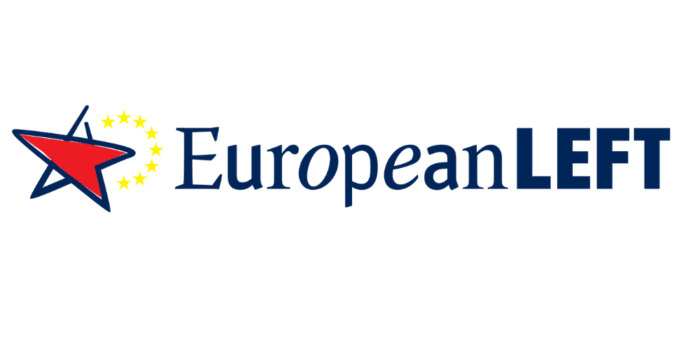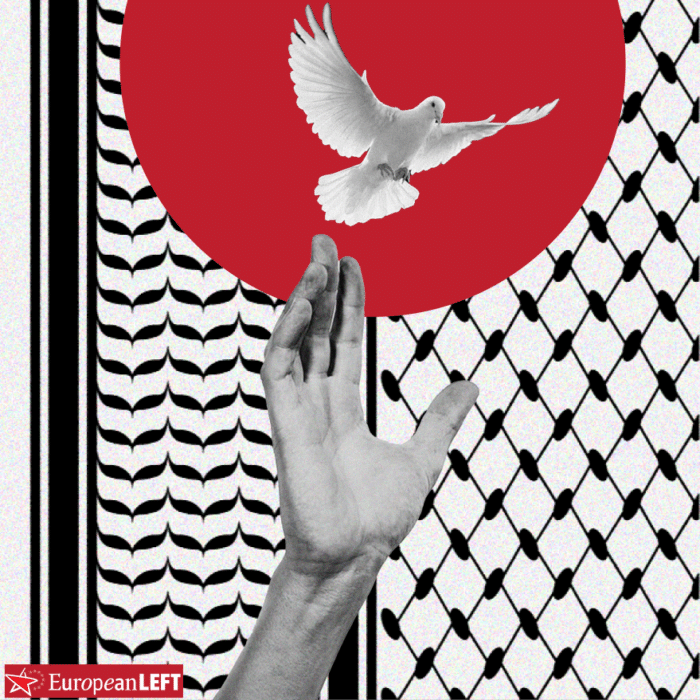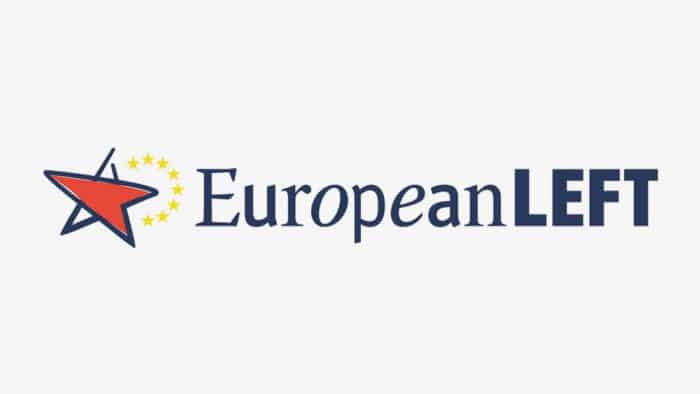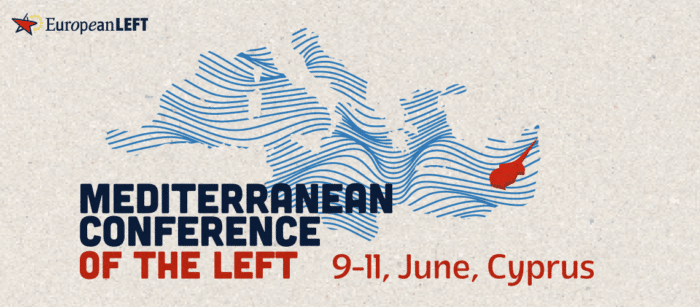International Solidarity
A Europe acting to transform the world order

To respond to the common emergencies of humanity: a Europe that acts for another world order of sovereign and associated peoples
Faced with the scale of the crisis of capitalism, the exacerbation of competition, the fragmentation of capitalist globalisation, the seriousness of the militarisation of international power relations, the conflicts/wars, the victimising of vulnerable groups and the common challenges for humanity – such as the climate, health and food crises, and their interdependence – international action is a crucial requirement, in the sense of the common interests of sovereign and associated peoples. There will be no national or European solution alone. In the current convulsions, another world order is being sought. There is potential, also due to more in-depth information/understanding, to fight and open up gaps in the capitalist and imperialist domination, to bring forward a new system of international relations based on the principles of the UN Charter, on collective and global security. The recomposition of the world, and the challenge to the hegemony of the United States by several states in the South, require Europe not to lock itself into a disastrous bloc policy but to be an actor for a future of justice and international solidarity, without aligning itself with a given bloc. A recast European level can bring together States that want to act for a different world order.
Such an objective implies several political initiatives:
Co-development to break with capitalist and imperialist domination
To break with the policies of domination, a refounded European Union acts to establish new economic, commercial and financial relations for a different world order based on mutual development and not on capitalist competition. The creation of instruments of economic and trade cooperation acting in this direction will be an instrument of a global transformation.

- Free trade treaties must be denounced. New international treaties to control trade and investment in the service of common goods, food security and the economic, industrial and agricultural sovereignty of peoples – allowing the development of cooperation and fair trade, aimed at human, social and ecological development – are being negotiated. The Energy Charter Treaty must be abolished.
- Diplomacy in Europe acts for a reform of international institutions in the direction of true multilateralism and equality between sovereign states. Rich country clubs like the G7 and G20 do not have the legitimacy to govern the world. The UN must therefore be reformed in the direction of democratisation, by strengthening the weight of the General Assembly for the benefit of the countries of the South. The resources of UN agencies and operators must be strengthened. Mobilisation of funds is necessary when related to humanitarian aid to those in need, for an immediate response in case of urgent /major crisis. Given its structural crisis, the WTO must be abolished. The IMF and the World Bank must be profoundly reformed so that they are part of a logic of cooperation, and no longer of a neo-liberal logic: aid plans must no longer be conditioned by structural reforms that are devastating for peoples and States, and the de facto right of veto enjoyed by the United States over their decisions must be abolished.
- The sovereignty of peoples in monetary matters must be respected, for true economic development at the service of people and the environment. The CFA/ECO franc, which is linked to the euro, must therefore be abolished in favour of monetary cooperation that the sovereign peoples of the states in the zone will freely choose.
- Europe is committed to the de-dollarisation of international trade and is working to build a common currency for international trade, independent of the dollar and of any attempt at unilateral domination. It supports initiatives in this direction, through an alliance with emerging countries. The IMF’s special drawing rights – which would be used to finance long-term, low-interest development loans to all countries of the world, to fund projects that meet the development needs of the common good and employment – can serve as a basis for such an initiative.
- In line with the annual vote of the UN General Assembly over the past thirty years on the need to end the US economic, trade and financial blockade of Cuba, governments and the EU are called upon to take concrete action against the blockade and the effects of the extraterritoriality of US law in Europe. Council Regulation (EC) No 2271/96 of 22 November 1996, calling for an end to the financial blockade, must be implemented. The EU acts for the removal of Cuba from the list of state sponsors of terrorism. The European Commission must lodge a complaint with the WTO against the violations of international trade law and the US sanctions against Cuba and Venezuela. It should also fully implement the EU-Cuba Political Dialogue and Cooperation Agreement.
- A global debt conference will be convened under the aegis of the UN to assess a rescheduling of debts so that they are no longer an instrument of international, inter-state or speculative market and bank domination of state As a first step, EU countries do not charge for pandemic-related debts. The Covid debt must be cancelled. Credit must be put at the service of employment, training and ecological transition. In addition, poor countries of global South, whose resources have been fiercely exploited by rich North, have also fallen into a foreign debts trap. Debts of the poor countries to international finance organisations and rich countries of global North should be abolished and invalidated.

The application of international law against policies of force
Against the politics of force and imperialist policies, diplomacy and international law are the foundations of other international politics.
- Diplomacy in Europe acts in defence of those universal principles which are those of the Universal Declaration of Human Rights of 1948 and the European Convention on Human Rights of 1950 and its additional protocols. The defence of human rights, individual and collective rights and freedoms, freedom of expression and opinion, freedom of the press and the fight against persecution, the fight against racism and anti-Semitism apply in all circumstances and are not variable geometry. Extreme right-wing governments must be isolated.
- UN resolutions are the basis of international law. Diplomacy in Europe acts to ensure that they are respected: for example, in Palestine, and in Western Sahara. The EU condemns Moroccan military interventions in the SADR and demands a binding referendum on self-determination to ensure the sovereignty of the Sahrawi people.
- Diplomacy in Europe acts for a just and lasting peace between Palestinians and Israelis, for the recognition of an independent and viable state of Palestine, in accordance with the European Parliament resolution of December 2014, alongside Israel, based on the 1967 borders with East Jerusalem as its capital. This includes the dismantling of Israeli settlements, the end of the blockade of Gaza, the return of refugees, the international protection of the Palestinian people, an end to the ongoing annexation process and an end to the apartheid regime applied to the Palestinian people in the occupied territories and in Israel. The EU acts for the international protection of the Palestinian people. To this end, the EU-Israel Association Agreement must be suspended.
- Achievement of the goals set out in the UN Charter and the UN Sustainable Development Goals, such as the goal of gender equality and the defence of women’s rights, the eradication of poverty and hunger and the full implementation of the Convention on Children’s Rights especially in crisis situations. Each European Commissioner will have to draw up a roadmap on how his or her departments intend to achieve them and thus reach the 2030 Agenda.

Europe as a lever of change for global human security
- Europe engages in feminist diplomacy. The EU is proposing to the UN that the Convention on Preventing and Combating Violence against Women and Domestic Violence becomes an international treaty. It fights against human trafficking. Gender issues must be taken into account in all EU external policies, to avoid reinforcing gender inequalities or creating new ones. The EU is committed to a new target of 20% of funding prioritising gender equality (as recommended by the OECD), up from the current 5%. A feminist fund to support international policies against violence against women and in favour of gender equality is created as an integral part of the EU’s official co-development assistance policy.
- Breaking with “Fortress Europe”. Migration policies must respect international law: the Universal Declaration of Human Rights (1948) and the Geneva Convention relating to the Status of Refugees. Abolition of the Dublin agreements, dissolution of Frontex, respect for international law in the reception of migrants, support to countries of entry including monitoring of the implementation of international treaties/refugee conditions, establishment of legal and safe channels for migration. The European Council Directive 2001/55/EC of 21 July 2001, establishing temporary protection of the EU, must be applied equally to all human beings fleeing war, persecution and political repression. Neither origin nor skin colour can determine whether or not one has access to the guarantees offered by the EU. Ensure that fundamental rights are taken into account in the framework of agreements or declarations of cooperation on migration. Refuse to make ODA conditional on the good cooperation of third countries on readmission policy, as specified in the Paris Declaration on Aid Effectiveness (2005), the Accra Agenda for Action (2008) and the Busan Partnership (2011).
- Effectively combat tax evasion at the international level by creating a new, democratically managed institution under the aegis of the UN to coordinate the fight against tax evasion at the global level. A global COP (Conference of Parties) will be proposed for social and tax justice, under the auspices of the UN.
- Taxation of international financial transactions: European taxation of transactions on the foreign exchange market and on the financial securities markets and their derivatives will be strengthened and a global negotiation will be conducted for the generalisation of this system.
- Reform of public aid for co-development, in a context where humanitarian needs have increased by 25% compared to 2022 and where, according to the World Bank, up to 95 million people have fallen into extreme poverty in 2022 because of the Covid-19 health crisis. EU countries are encouraged to increase the amount of official co-development assistance to at least 0.7% of their gross national income. Great attention will be paid to the ownership and implementation, by the States, companies and civil society of the countries concerned, of their economic, social and human development projects, as well as their ecological transition policies. At least 50% of the aid will be devoted to the Least Developed Countries (LDCs) and basic social services. Member States are encouraged to sign the Call for Humanitarian Action. Sanctions regimes and anti-terrorism policies cannot prevent or limit official co-development assistance. UN Resolution 2664 (2022) on humanitarian exemptions to sanctions regimes should be applied to sanctions taken by the EU and by Member States.
- Global cooperation to make medicines and vaccines a universal common good fully accessible.
- Strengthening the prerogatives of the ILO. Its conventions and resolutions must become binding on States, as well as on transnationals and multinationals.
- The EU establishes relations with the international cooperation frameworks of the G77.
News about international solidarity

Related press releases
Relevant Working Groups
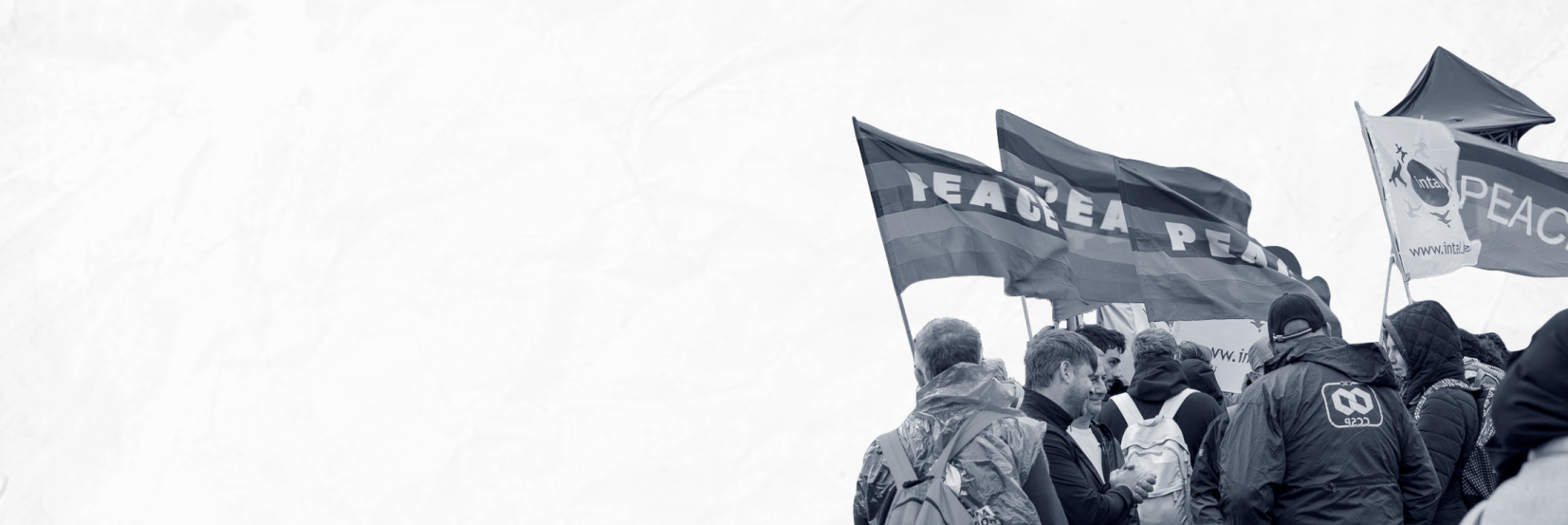
contact us!
Want to join the EL ? Any questions ?
Get in touch with us by mail, we will get back to you as soon as possible.
